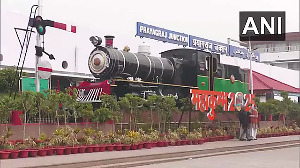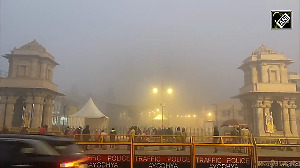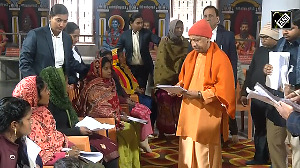Are you the head of a corporate house and want to help Nagapattinam? One way is to write a cheque. The prime minister's and chief minister's relief funds provide a way of donating money and creating photo-ops.
But the thing not to do is to provide relief materials like medicines, used clothes, blankets, rice and other edibles. Tsunami-hit Nagapattinam is floating on a sea of all that stuff.
Tankers of water, however, will be useful. Home starter kits, buckets, containers for water, steel vessels and other articles sent by enthusiastic donors are piled up in mounds, some 70 feet high, behind the collectorate.
Locals say there is a limit to what they can do with umbrellas and raincoats. One corporate house has donated a large number of water filters, which work only when there is an inlet and outlet source for water.
Bureaucrats are sitting, heads in their hands, wondering what to do with these. Flushes, fancy toilet seats and cisterns are not required because they cannot be used in temporary structures.
Mounds of used clothes, sent by well-meaning housewives who want to dispose them of without a guilt conscience, are lying unopened in plastic sacks.
They have been dumped in the garden of the decrepit government tourist lodge in Nagapattinam. The government has floated a tender of Rs 30,000 for their disposal. They will have to be removed because textile factories in nearby Erode and Tiruppur have now begun providing new clothes.
What, however, is desperately needed is people, not things.
Recognising this, some corporate houses have sent personnel.
IBM and Infosys employees are drawing matrices, running computer services, acting as data entry operators and providing a host of services to supplement government efforts and help NGOs run their operations without duplication.
What is desperately needed is labour: to build roads, clear the debris, help the government in doing some urban planning and most importantly, devising ways to build structures for fishermen that will be practical, safe and culturally acceptable.






 © 2025 Rediff.com -
© 2025 Rediff.com -